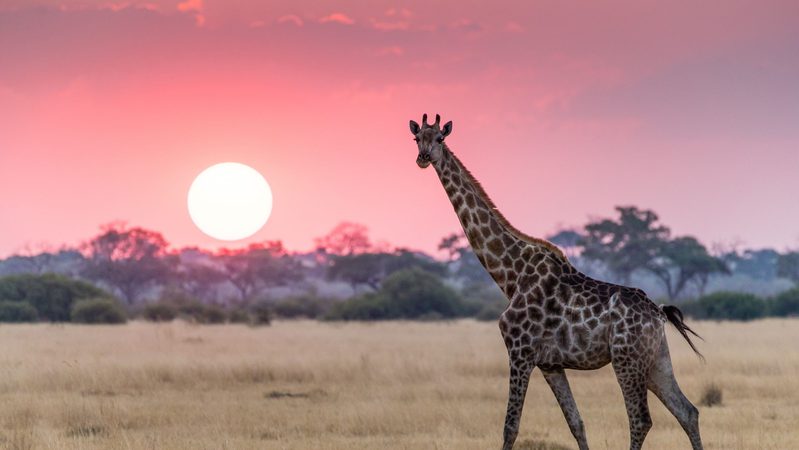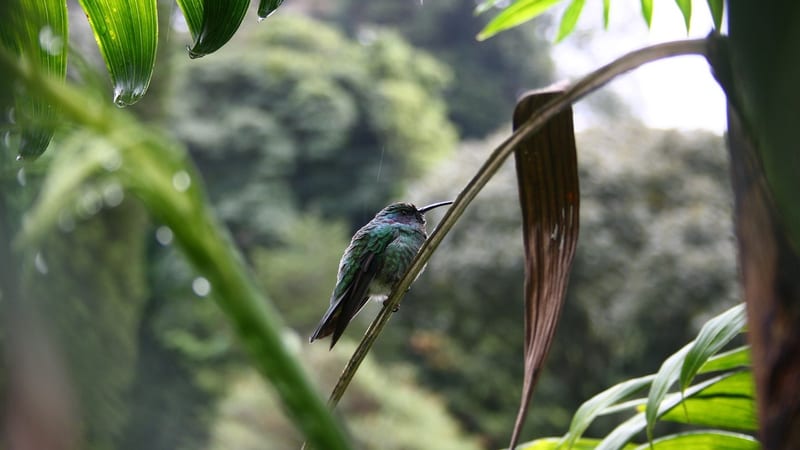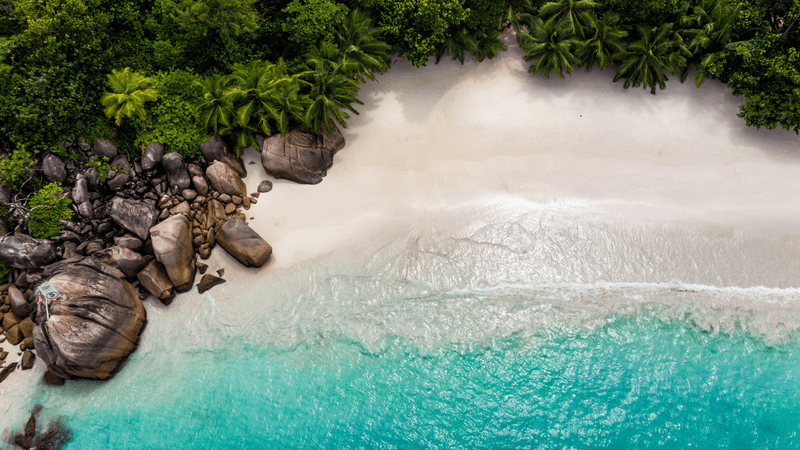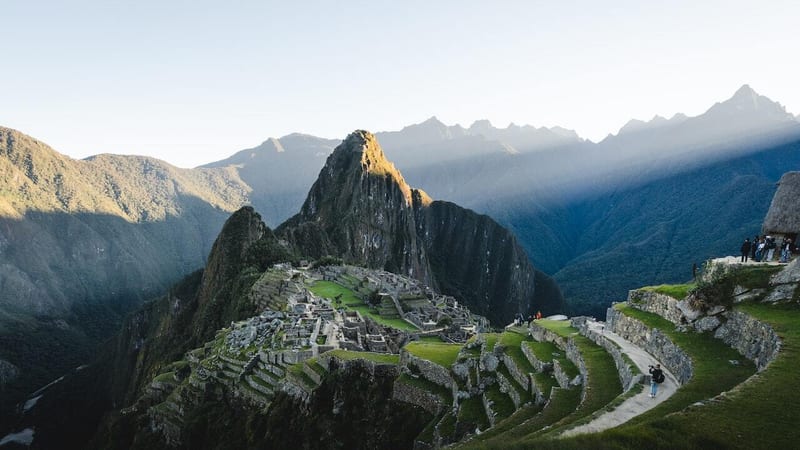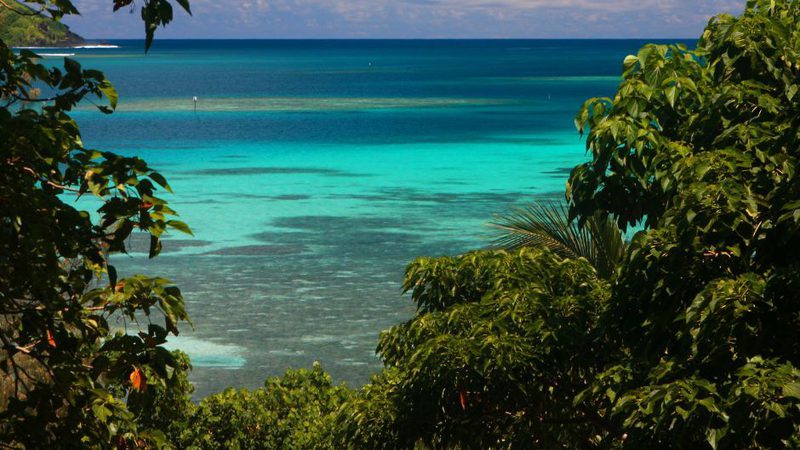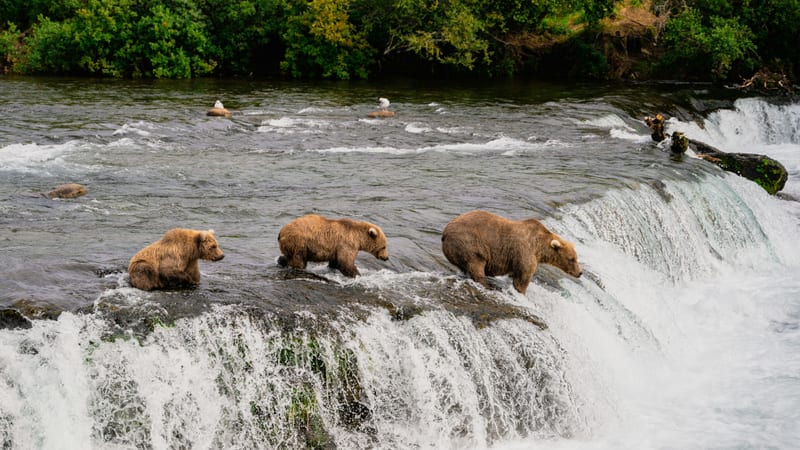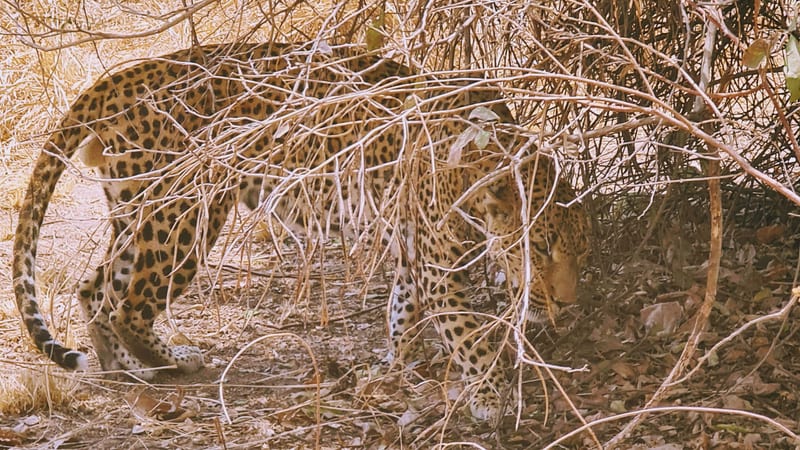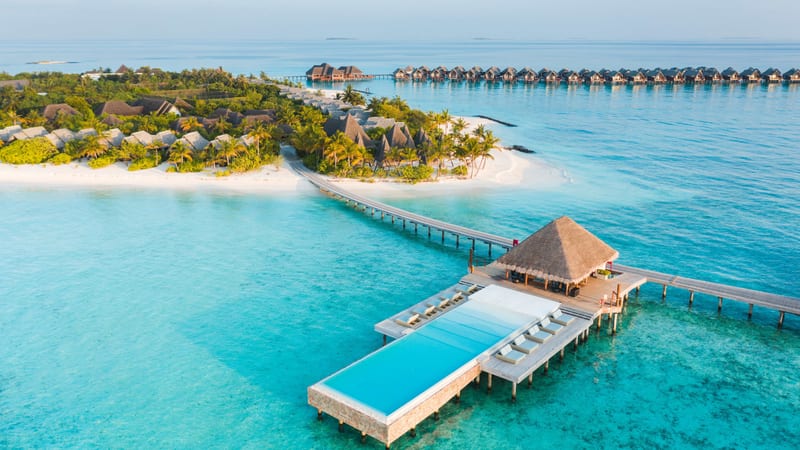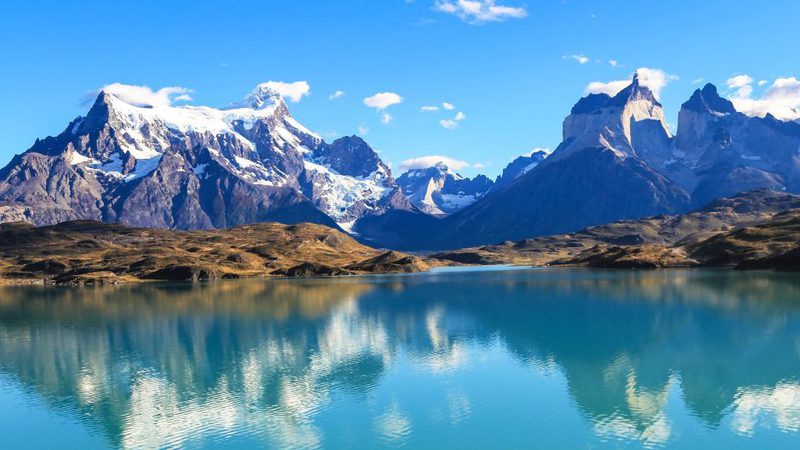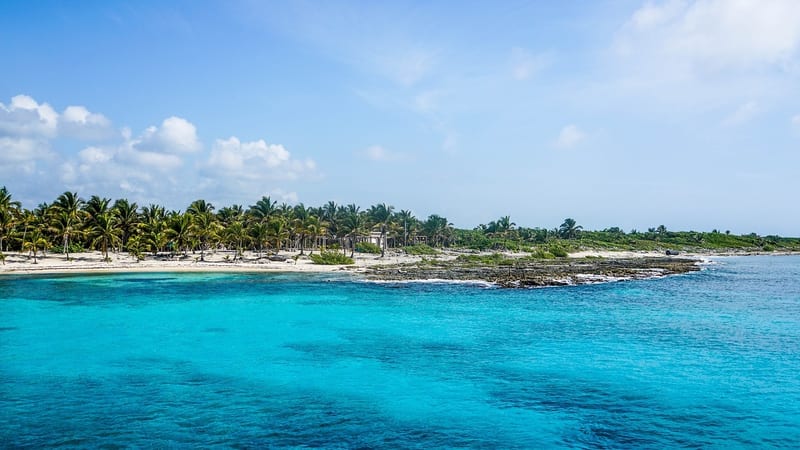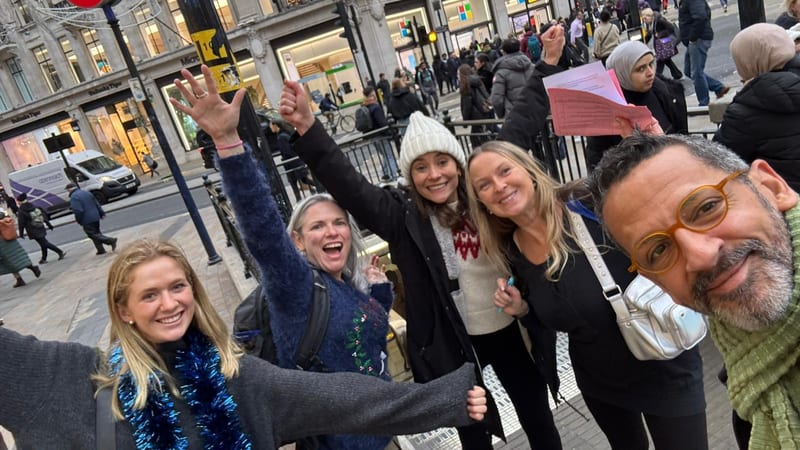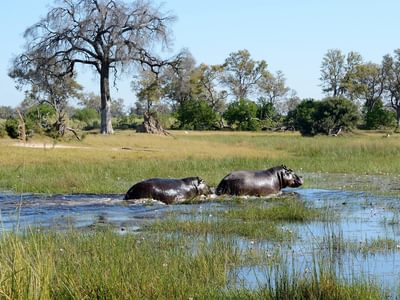
Botswana is home to the Okavango Delta, the world's largest inland flood and is synonymous with exceptional game-viewing. South Africa boasts the vast Kruger National Park, well-known for its high chances of spotting the Big Five.
But which offers the better safari experience?
We asked Botswana local, and frequent visitor to South Africa, Tessa to help you decide.
Choosing between going on safari in South Africa versus Botswana can be challenging, considering the wide range of experiences on offer. I was recently fortunate enough to travel to the South African bushveld and Kruger National Park and have compared the different safari experiences in these areas to help you determine which safari experience best suits your expectations and needs.
1. Access
South Africa is easy to access with a direct flight from the UK to Johannesburg airport, and it is then a short hop from Johannesburg airport to the Kruger National Park, either by driving or a quick light aircraft. There is no time difference either making the trip even more seamless.
Access to Botswana is more limited with the need to fly first to South Africa, and then with flights only coming once a day from Cape Town and Johannesburg to Maun, the main access point for safari. You then need to transfer from Maun to the Okavango Delta by small charter aircraft which whilst a fantastic experience and adventure in itself, also pushes up the cost of a Botswana safari. This makes a Botswana safari a more exclusive and adventurous experience that is worth the extra effort if your budget allows it.
Ease of access - win to South Africa & the Kruger.
2. Landscapes
The Kruger and Okavango Delta have vastly different landscapes, and whilst there is variation within each region, they broadly differ in two main ways: water and elevation.
The waters of the Okavango Delta are a major drawcard to the Botswana experience and our flat sandy expanses differ from the South African landscape which varies from rugged mountains to rolling hills and thick bushveld. Whilst Botswana landscapes do vary within the region, there are fewer variations in the overall landscape and someone looking for changes in altitude, dramatic lodge settings and geology will find greater differences between lodges in South Africa. The permanent South African rivers tend to be wider and more forceful than the sedate calm flood waters of the Okavango wetlands and even the impressive Chobe River in full flood is slower and more peaceful than the South African rivers when they are flowing. Many rivers in the South African lowveld, where most lodges are based are seasonal however, with sandy river beds that flow only during extreme rainfall. The rocky and varied terrain also creates opportunities for high points of elevation and lookouts over the surroundings which are very limited in Botswana’s flatter landscape.
Whilst a stay at a camp like Xugana Island Lodge makes the most of the Okavango Delta experience, it is a great contrast to the rugged experience of Leopard Hills which is a great example of a South African elevated lodge making the most of the view.
Winner? Both are wonderful in their own rights; it simply depends on what you like in a landscape, but Botswana offers a more unique experience that can't be replicated elsewhere.
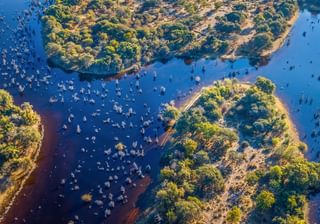
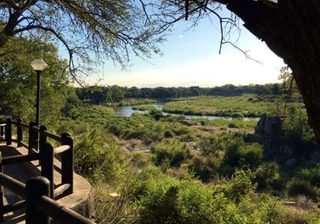
3. Wildlife
Both Botswana and South Africa have exceptional wildlife viewing opportunities and the big five available for sightings, but the landscape and habitat favour certain species, so if you have a favourite here is a guideline on where you are more likely to see them.
The Sabi Sands in Greater Kruger is known for its leopard density and whilst there are many lodges in Botswana where leopards are often seen, the Sabi Sands are hard to beat. Leopards love the rocky hills and large trees found in the lowveld here whereas they are more elusive in Botswana’s wide open spaces. Lions, rhinos and the other big five are also often seen. Large elephants with significantly sized tusks known as “tusker” are also more likely to be seen in the Kruger Park and its surrounding conservancies. Rhinos are also more common in the Kruger National Park than in Botswana where there are only a very limited number and these tend to be found in Moremi Game Reserve. In short, if you are looking to quickly tick the Big Five off your wildlife sightings, you will likely do this more quickly in the Kruger.
Botswana is known for its density of elephants and large herds are often seen thanks to its open expanses, but big tusks are very rare. Buffalo, wildebeest and zebra can all be seen in very large numbers, and Botswana is home to the world's largest zebra migration. The water-adapted antelope, including the sitatunga, red lechwe and puku are all seen in Botswana. Botswana also has the Makgadikgadi salt pans which complement an Okavango Delta safari itinerary, and it is in the Makgadikgadi pans that you can not only see Springbok, but you can also interact with meerkats as they go about their day - a highlight for many visitors. Jack’s camp offers a wonderful meerkat interaction and if well timed, you can also see the significant wildebeest and zebra migration.
Best for wildlife: it entirely depends what you are looking for - if you want to quickly tick off the Big Five then South Africa, if you want vast herds of elephants, unique water-adapted animals and spend time with meerkats, Botswana.
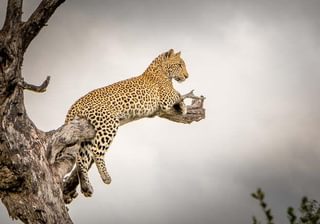
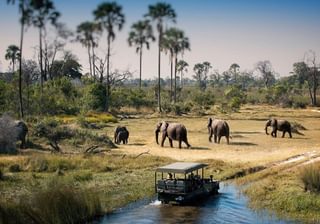
4. Bird life
Both South Africa and Botswana have impressive bird lists, but the Okavango stands out as a birder’s paradise. Find any water and there will be a selection of water birds to see that are impressive whether you have an active interest in birding or not. The sheer volume of birdlife, their dramatic colours and the entertainment that watching their actions can bring are more accessible in Botswana where the water is slower, closer and a greater part of the safari experience. This combined with open grasslands, makes bird photography also more accessible than the shrubby woodlands of the bushveld in South Africa. Special sightings to look for include flamingos, wattled cranes, African skimmers, the carmine bee-eaters, pygmy geese and many more.
A stay at Kanana Camp gives you access to a heronry for the ultimate Botswana birding experience.
Best for birdlife: Botswana is a clear winner here
5. Safari activities
Many lodges in both Botswana and South Africa are on private concessions which is where we would generally recommend our clients stay. This allows lodges to offer night drives and to drive offroad for exceptional sightings. In National Parks, regardless of country, driving hours are regulated and so is offroading.
This means that the day-to-day safari experience tends to be similar, but Botswana has the added advantage of being able to offer traditional mokoro experiences, game viewing from motorboats, sunset cruises down Chobe river and fishing, as well as the activities offered in South Africa notably walking, game drives and night drives.
Mokoro experiences tend to be slower and calmer, with less of a focus on game viewing, instead, taking the time to look at the little things as you slowly cruise past. Being able to view animals from the water level is incredibly unique and special. Motorboats offer a similar viewpoint but offer better game-viewing experiences due to the greater distances they can cover.
Mobile safaris which range from a very simple camping experience to the more luxurious offerings of mobile operators like Golden Africa Safaris are also more common in Botswana. Whilst this mode of travel and safari experience is also found in East Africa it is not common in the South African bushveld.
In South Africa, a self-drive or self-catered safari is easy and accessible, whilst for a similar experience in Botswana a more rugged vehicle and a greater sense of adventure are required.
Range of activities: Botswana takes the edge here thanks to its water-based activities which are a unique safari experience, although, particularly if your first safari, you won't be disappointed by the range in South Africa.
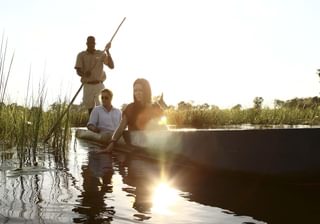
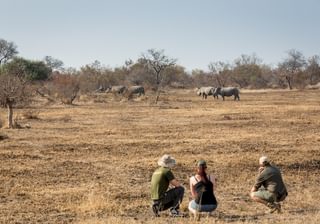
6. Culture and people
If going on safari in areas close to large communities is what you are looking for then South Africa will suit you better. With great tribal diversity and larger communities close to the bushveld, you are more likely to be meeting someone who lives in the area.
If you would prefer to avoid bumping into people then the small population of Botswana, at 4 people per square kilometre compared to South Africa at 49 is the right place for you. In Botswana communities mostly live on the outskirts of the wildlife areas and are seldom seen when visiting the area. The exceptions are Xaxaba, Khwai and Mababe villages. Khwai Guest House located in Khwai village will allow you to see rural life and wildlife coincide.
Locally owned properties are developing in Botswana but the options in South Africa like Buffalo Ridge Safari are more established.
Tribal diversity: South Africa takes the edge here, and you are more likely to come across local people than in Botswana.
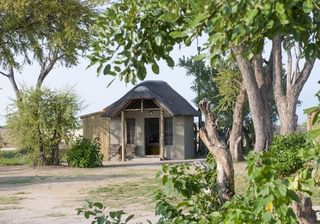
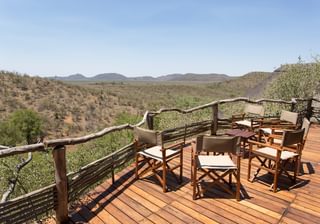
7. Lodge density, road quality and network
South Africa has a higher density of lodges which results in more roads whilst, in Botswana, there are large open expanses without any road network that are seasonally flooded. This is notable when flying over the area.
In South Africa, the game reserves have been formed over decades and most lodges in the South African bushveld now fall within the Greater Kruger Park without fences dividing them from each other. The historical use of these areas means that the old fence lines or tarred roads cutting through this area are a reality. The smaller reserves and higher lodge density are a stark contrast to Botswana’s wild places. The high-end and luxury lodges are adept and creative at making your safari feel connected to the wild without the higher lodge density, but if true exclusivity and space are what you are looking for, then Botswana and properties like Jacks Camp are a better bet.
Botswana has traditionally followed a high-income – low-volume tourism model and for the most part (Chobe riverfront excluded) crowds are not found. In Botswana, private concessions are much larger with fewer camps and lodges on each concession. In Botswana, there are more opportunities for sighting wildlife alone and it is still possible to do a drive without seeing another vehicle.
Botswana roads, whether in a National Park or private concession, require 4x4 and are rougher, untarred and ungraded. This is not a considerable difference, but it does lead to a sense of a wilder experience in Botswana and makes self-driving there much more adventurous than in South Africa, where, in particular, in Kruger National Park, the roads are tarred and you could drive round in a mini!
Fancy doing it yourself? Consider self-drive Botswana if engaging 4x4 sounds exciting or Self-drive Kruger if you’d prefer to stick to graded roads on your self-drive safari.
Winner: South Africa is better for a more connected network, but we love the lower density of lodges in Botswana.
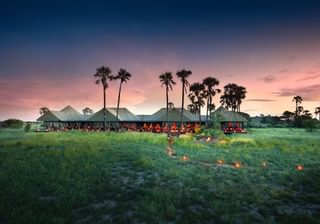
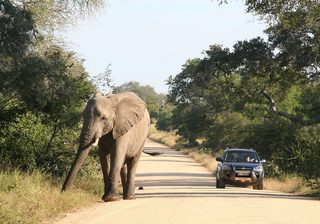
8. Combine it with...
Traditionally, landlocked Botswana is considered a more pure safari destination and offers a greater variety of parks within the country from the Okavango Delta to Chobe to Madikgakigaki through to the Kalahari desert. It can be easily combined with Victoria Falls or neighbouring Namibia with its stark, desert landscapes - a wonderful contrast to the waterways of the Okavango Delta.
In contact, the South African wildlife experience can easily be combined with Cape Town, the Winelands and the Garden Route or the beaches of Mozambique for some post-safari rest and relaxation.
Winner: for a wide variety of different safari landscapes, then Botswana, for a more rounded trip with beaches or other cultural elements then South Africa takes the biscuit.
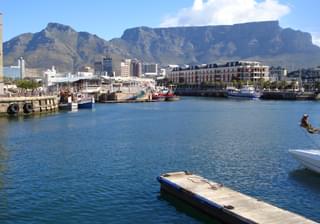
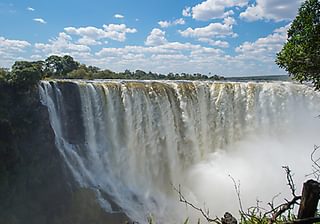
9. Wilderness
Of course, a safari is about the wildlife you see, but for many people, a holiday to Africa is also about exploring pure wilderness. Feeling at one with nature, getting off the beaten track, not seeing another sole.
Here, Botswana wins hands down. The limited number of people and lodges, lack of roads and vast space all give a real sense of wilderness that South Africa simply can't match. It is this exclusivity, this sense of having the landscape to yourself that is one of the key draws of a Botswana safari and that is especially associated with the Okavango Delta, although it is worth noting that there are areas within Botswana, particularly Chobe National Park where it can become more crowded.
One of the key draws of Kruger National Park in South Africa is how accessible it is, but this naturally means more people visiting and even in the private conservancies, there are more lodges, more closely packed, meaning that whilst you can go off-track here and take activities such as walking or night safaris, it is unlikely to provide the same vast, expansive sense of wild that you can get in Botswana.
Winner: Botswana
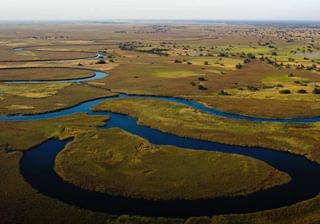
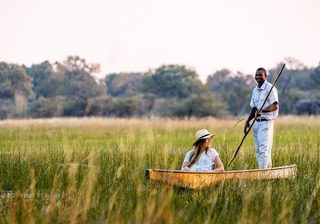
10. Costs
Whilst the costs of a safari will vary depending on the time of year you visit, the type of accommodation you stay in and the duration, it is fair to say that generally, a Botswana safari will be more expensive than a South African safari (although this is certainly not always the case).
Why are Botswana safaris generally more expensive? There are several reasons for this, firstly, your international flight will be more expensive as you will fly from the UK to Johannesburg, and then from there onto Maun in Botswana. Secondly, you generally have to fly between lodges due to a limited road network and the Okavango floods which is more expensive. Thirdly, Botswana operates a low tourism volume, higher price model which tends to mean safaris cost more. Fourthly, there is less variety in accommodation, with more luxury lodges and fewer affordable options to choose from.
It is worth noting, that whilst South African safaris can be cheaper due to ease of access and a greater variety of lodges at different price points meaning you can choose to stay in a more basic option at a lower cost, South Africa still has plenty of luxury, high-end lodges which may command a similar per night price to that of Botswana, so it's not to say that it is always a cheaper option. We would typically suggest our clients stay in a private reserve for a more exclusive game-viewing experience, and whilst these lodges may be a little cheaper than an equivalent to those in Botswana, there isn't always a significant per-night difference.
Winner: in most cases, South Africa is a more affordable option.
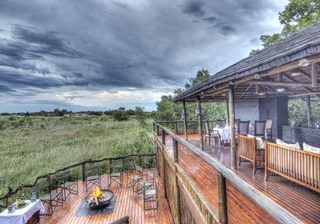
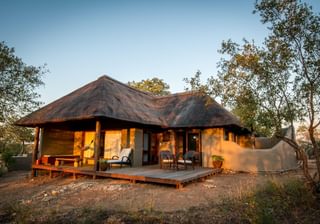
11. When to go
Whilst the abundant wildlife means that both are year-round wildlife destinations, peak safari season for both the Kruger and Okavango Delta is during the dry season which is from May to October. Peak flood season which coincides with the dry season is from June to August in the Okavango Delta and this is a particularly good time for water-based activities as well as general game viewing.
The green season which is also when it is best for birding and low season so expect lower rates is from November to April for both.
No matter which safari option you choose the safari experience and thrill of discovering wild animals in their natural environment will be unforgettable.
In a nutshell, Botswana offers a wilder more exclusive safari experience than those found in South Africa within a unique setting. South Africa has a broader range of accommodations, experiences and landscapes and is more accessible.


